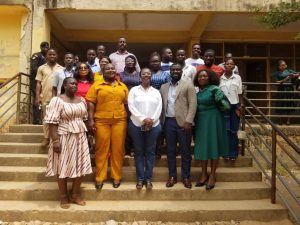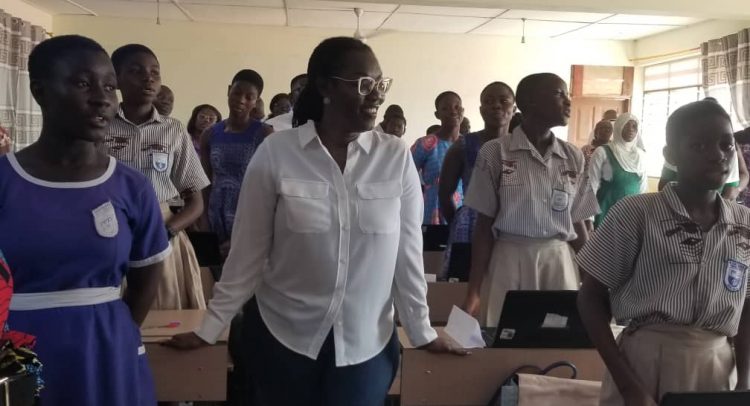In a bid to empower girls and bridge the digital divide, the Ministry of Communications and Digitalisation (MoCD), spearheaded by Ursula Owusu Ekuful has announced plans to establish the Girls in ICT Trust.
This initiative aims to provide digital skills, training and mentorship opportunities to girls, enabling them to pursue careers in the field of information and communication technology (ICT).
The decision to set up the trust comes after facing challenges in securing funds for the program, leading to a delay in its implementation. However, recognizing the positive impact of the training on the lives of girls, the ministry and other key government and non-state actors are determined to ensure the sustainability and expansion of the initiative.

Addressing the media Ursula Owusu Ekuful emphasized that the Girls in ICT Trust will have its board of trustees, tasked with writing proposals to raise funds from various stakeholders, including private sector companies and funding agencies. The trust aims to extend its reach beyond the current 3,000 girls trained annually to at least 10,000, while also focusing on sustaining and growing the mentorship aspect of the program.
‘Key government ministries, including the Ministry of Communications and Digitalization, Ministry of Education, and Ministry of Gender, will be part of the trust’s leadership. Additionally, private sector companies and individuals will have the ‘opportunity to contribute to the trust’s objectives and be part of its success,’ she said.
Ms Owusu Ekuful further stated that the establishment of the Girls in ICT Trust represents a unique public-private partnership, aiming to leverage both public and private sector resources to enhance the output and impact of the program.
“The government believes that this approach will allow for greater flexibility and efficiency in raising funds and supporting the long-term sustainability of the initiative,” she said, adding that her outfit is committed to monitoring and evaluating the impact of the program on the lives of the girls systematically, “This will be embedded in the work of the Girls in ICT Trust, ensuring that progress is tracked and guided through dedicated mentors.”
While some have suggested that legislation is needed to regulate and sustain the initiative, the Minister emphasizes that a public-private partnership model will allow for more flexibility and collaboration between sectors, ultimately enhancing the effectiveness and reach of the program.
The said establishing the Girls in ICT Trust represents a significant step towards institutionalizing digital skills training for girls in Ghana and serves as a model that other countries can emulate, stating that the government hopes that this initiative will help narrow the gender digital divide and empower girls to be confident users of digital tools, ultimately contributing to their success in ICT-related careers.
She added that the government is a crucial stakeholder committed to the success of this initiative. “We are dedicated to ensuring that all girls have access to digital tools and skills training.”
“By partnering with the private sector, development partners, and funding agencies locally and internationally, we aim to expand this program beyond its current scope. This initiative will serve as a prototype for similar projects in the future. We are excited about the potential impact and opportunities this initiative will create for girls in Ghana.”
BY Prince Fiifi Yorke


